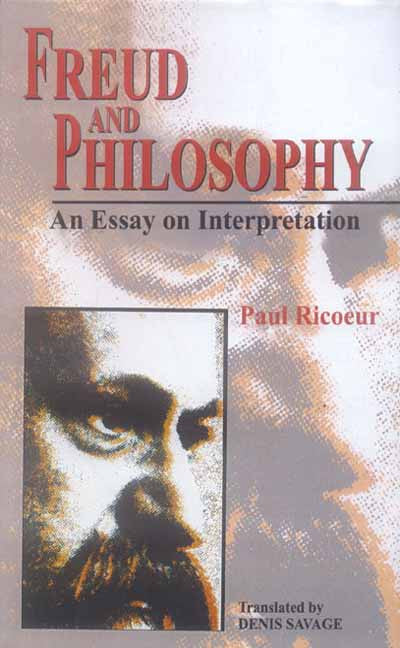Freud and Philosophy: An Essay on Interpretation
![]() 100% Genuine New Books
100% Genuine New Books
![]() Fast Shipping with Tracking Number
Fast Shipping with Tracking Number
Secure Payments via UPI, Cards & Wallets
![]() Trusted Support & Easy Returns
Trusted Support & Easy Returns
Freud and Philosophy: An Essay on Interpretation - Hardcover is backordered and will ship as soon as it is back in stock.
ISBN : 9788120833050, 8120833058
Year of Publication : 2008
Edition : 1st
No. of Pages : 573
Language : English
Condition : New
Publisher: Motilal Banarsidass Publishing House
Free shipping on orders over Rs. 249
Free shipping on orders over Rs. 249
We offer free shipping on orders above Rs. 249 in India. For orders below this threshold, a nominal shipping fee may apply, which will be clearly indicated during the checkout process.
How long will it take to receive my order?
How long will it take to receive my order?
The delivery time varies depending on your location. Generally, orders are processed and shipped within 1-3 business days. Once shipped, you can track and expect your order to arrive within 3-7 business days (the duration may vary depending on your location). For more information, please refer to our shipping policy.
Chat with a Real Person
Chat with a Real Person
WhatsApp chat is dedicated to assisting with after-sales queries regarding delivery, returns, and payments. Click below to initiate chat with us on WhatsApp:
[Bookstaa WhatsApp Chat].
For all other inquiries, please visit our customer support page or email us at support@bookstaa.com.
Couldn't load pickup availability
Description
Description
This book originates in the Terry Lectures given at Yale University in the autumn of 1961. According to the author, this book deals with Freud and not with psychoanalysis. Secondly, this book is one not of psychology but of philosophy. The problem concerns here is the texture or structure of Freudian discourse. First, it is an epistemological problem: What is interpretation in psychoanalysis. and how is the interpretation of the signs of man interrelated with the economic explanation that claims to get at the root of desire? Second, it is a problem of reflective philosophy: What new self-understanding comes out of this interpretation of culture exclude all other? If not, what is the rule of thought by which it can be coordinated with other interpretations without falling into eclecticism? Book II, the "Reading of Freud," conducted as rigorously as possible, has been kept separate from Book III, the "Philosophical Interpretation". Thus the reader may treat the "Analytic" of Book II as a separate and self-sufficient work.
About the Author(s)
Paul Ricoeur (1913-2005), a French philosopher, is best known for combining phenomenological description with hermeneutic interpretation. Ricoeur taught at the University of Strasbourg 1948-56. In 1950 he received his doctorate and soon acquired a reputation as an expert on phenomenology, whose popularity in France had begun during the 1930s. In 1956 Ricoeur took up a position at the Sorbonne as the Chair of General Philosophy. While at the Sorbonne, he wrote Fallible Man and The Symbolism of Evil published in 1960, and Freud and Philosophy: Essays on Interpretation published in 1965. Ricoeur taught briefly at the Catholic University of Louvain in Belgium, before taking a position at the Divinity School of the University of Chicago, where he taught 1970-85. Thus Ricoeur became one of the few intellectuals well acquainted with the three major intellectual scenes: French, German, and Anglo-American. This culminated in his The Rule of Metaphor: Multi-disciplinary Studies of the Creation of Meaning of Language published in 1975 and the three-volume Time and Narrative published in 1984, 1985, and 1988. Ricoeur gave the Gifford lectures in 1985-86, published in 1992 as Oneself as Another. On November, 2004, he was awarded with the 2nd John W. Kluge Prize for Lifetime Achievement in the Human Sciences (shared with Jaroslav Pelikan). Paul Ricoeur died in his house of natural causes on May 20, 2005.
About the Publisher

Motilal Banarsidass Publishing House (MLBD)
Motilal Banarsidass Publishing House, popularly known as MLBD, is one of the oldest and most prestigious publishing houses in India, established in 1903.
With over a century of legacy, MLBD has been at the forefront of publishing scholarly works in the fields of Indology, Sanskrit, philosophy, religion, spirituality, yoga, Buddhism, and Jainism.
Renowned for its authenticity and academic rigour, MLBD's books are trusted by researchers, scholars, and readers across the globe.
With more than 5,000 titles in circulation, MLBD continues to uphold its commitment to preserving and promoting India’s rich cultural and philosophical heritage.
Bookstaa is an authorized distributor of MLBD books, ensuring 100% genuine and original publications for our readers.

